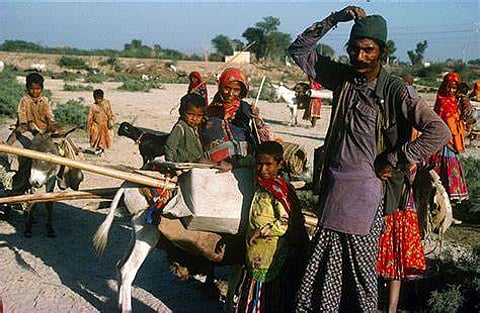
New Delhi- August 1, 2024, marked a historic day in the contemporary discourse on reservation, as the Supreme Court's Constitution Bench ruled to allow states to sub-classify Scheduled Castes (SCs) and Scheduled Tribes (STs) to ensure that quota benefits reach more backward castes within these groups. Another significant aspect of this verdict was the majority opinion favoring the exclusion of the creamy layer from SC and ST categories.
Justices DY Chandrachud, B.R. Gavai, Vikram Nath, Pankaj Mithal, Satish Chandra Sharma, and Manoj Misra overruled the 2004 judgment in EV Chinnaiah vs. State of Andhra Pradesh, which had held that SCs constitute a homogeneous group and cannot be sub-categorized. Justice Bela M. Trivedi was the lone dissenter, asserting that Scheduled Castes constitute a homogeneous class and "cannot be tinkered with by the States" (Indian Express, August 2, 2024).
This verdict has sparked new discourse on the issue of reservation, particularly concerning the representation of Dalits at both micro and macro levels in Haryana. According to Aadhaar Statistics, Haryana's population in 2022/2023 is 27,388,008, compared to 25,353,081 in the 2011 census.
Of this population, one-fifth belong to the SC category. However, within Haryana’s SC population, there is significant conflict regarding reservation. At the micro level, there are two major castes within SC—Chamar and Valmiki—each with differing levels of socioeconomic status. Valmikis are notably more backward compared to Chamars, creating a significant gap in job and educational opportunities.
Previously, SC quotas in Haryana were divided into two groups, Block A and Block B, by Bhajan Lal's government based on socio-economic and educational factors. However, this division was consolidated into a single SC category in 2006 under Chief Minister Bhupinder Singh Hooda's Congress government. This integration led to discontent among Valmikis and other backward castes, who felt their needs were being overlooked. In the 2019 general election, the BJP promised to re-segregate the SC quotas, which attracted Valmiki support.
In 2020, the Haryana Assembly enacted legislation to divide the 20% reservation quota for SCs in higher education institutions into two halves: one for the newly created Deprived Scheduled Castes (DSC) category. This category includes 36 communities, such as Sapera, Valmiki, Bazigar, Sansi, Deha, Dhanak, etc. The government argued that the DSC's share in Group A, Group B, and Group C services was insufficient, leading to increased DSC activism and demands for quota segregation in jobs.
Recently, Haryana Chief Minister Nayab Singh Saini announced raising the creamy layer ceiling for Other Backward Castes (OBC) from 6 lakhs to 8 lakhs. In response, the DSC has called for extending DSC quotas to jobs as well. However, this issue has not yet been addressed in court.
The Supreme Court's recent verdict will create complications for Haryana’s government. If the government extends DSC quotas to jobs, it could gain support from the approximately 20-22 lakh DSC population but risk alienating the other 20-22 lakh SCs in the upcoming 2024 Assembly elections.
In Haryana, there may be a need for three categories in the quota system: SC, DSC, and Extremely Deprived Scheduled Caste (EDSC). As discussed with Kamal Banbhori, who has been working on Denotified, Nomadic, and Semi-Nomadic Communities (DNT) for a decade, the DNT community, which has a significant presence in Haryana, is also seeking recognition. The 2011 census data shows that DNTs constitute 7.2% of Haryana’s population, with approximately 15,06,391 people across 50 castes. Many DNT members are still unaware of their constitutional rights and reservations.
Another emerging discourse involves the DNT community, as Haryana’s CM has proposed recognizing 33 DNT castes as STs. With no ST category currently in Haryana, this proposal adds complexity to the reservation debate. Policymakers will face challenges balancing the segregation of SC quotas among SC, DSC, and EDSC categories while addressing the concerns of the DNT community.
- Dr. Krishan Kumar is an Assistant Professor in Human Rights and Value Education, DAV College for Girls , Yamunanagar.
You can also join our WhatsApp group to get premium and selected news of The Mooknayak on WhatsApp. Click here to join the WhatsApp group.